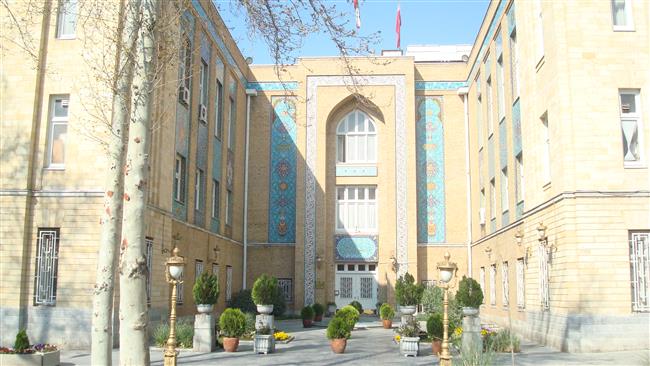Iran’s Foreign Ministry has announced that the country will commit to no obligation beyond those it has already agreed to under an international nuclear deal, amid attempts by the United States to change the terms of the 2015 accord.
In a statement released on Saturday, the ministry said that US President Donald Trump once again had to extend waivers that are mandatory under the deal, officially called the Joint Comprehensive Plan of Action (JCPOA).
“The internal solidity of and international support for the agreement have blocked attempts by Mr. Trump, the Zionist regime [of Israel], and the ominous alliance of hard-line warmongers to terminate this agreement or make changes to it,” the ministry said, according to Press TV.
On Friday, Trump extended waivers of key economic sanctions on Iran for another 120 days but said he was doing so “for the last time.”
Although the US president declined to seize an opportunity to withdraw from the Iran deal — which he has long railed against and formerly promised to “rip up” — he gave a four-month deadline to US Congress and America’s main European allies to address what he called the “disastrous flaws” of the deal.
Trump said he wanted Congress to pass a bill requiring “timely, sufficient, and immediate inspections” at all sites by inspectors of the International Atomic Energy Agency (IAEA), and the indefinite extension of limits on Iran’s uranium enrichment and other nuclear activities.
But the European parties to the deal and China and Russia, the two other parties, have made it clear that they will not reopen negotiations on the deal, which they say is working as it is; and Trump’s demands could thus only be addressed by domestic US law, with no jurisdiction over Iran or the IAEA, and with no direct effect on the JCPOA.
Iran, too, has been abundantly clear that it will not renegotiate the deal.
In its statement, the Iranian Foreign Ministry reiterated that position.
“The Islamic Republic of Iran stresses clearly that it will take no measures beyond its commitments under the JCPOA and will accept no changes to this agreement now or in the future and will not allow that the JCPOA be linked to any other issue [than the nuclear issue],” the statement read.
Trump had said the US Congress bill also had to review Iran’s long-range missile and nuclear activities as inseparable, and that the country’s development and testing of missiles should be subject to severe sanctions.
Trump also ordered the imposition of new sanctions on 14 individuals and entities over alleged rights abuses, censorship, and support for weapons proliferators.
The Iranian Ministry of Foreign Affairs condemned those new sanctions and said that the US government was obliged to honor all of its commitments under the JCPOA, but that since its implementation, it had reneged on its pledges and violated the terms of the deal.
Trump’s action and policies over the course of the past year specifically violate Articles 26, 28 and 29 of the JCOPA, it said.
Among the individuals targeted with new sanctions was Iranian Judiciary Chief Ayatollah Sadeq Amoli Larijani.
The Foreign Ministry said that the Washington’s “illegal” move to target the official passed all behavioral red lines in the international community, breached the principled rules of international law, and would be met with serious reaction by the Islamic Republic.
H.M

